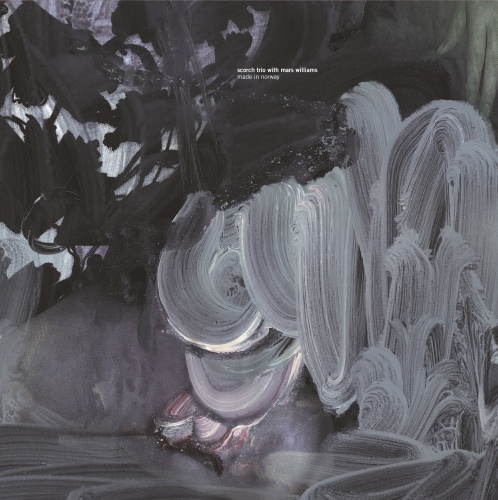My previous experience with Bjorkenheim's playing is on Edward Vesala's masterpiece, Lumi, one of the very finest records of the Eighties - perhaps the very best, in the same way as Tomasz Stanko's masterpiece Leosia is perhaps the best record released in the Nineties, but I digress. That new recording with the Scorch Trio looks very interesting.cybot wrote:This stunning live album features one of my favourite European guitarist Raul Björkenheim formerly of Krakatau/Vesala. Now this is the type of guitar playing that does it for me. A thrilling mismash of anyone you can think of particularly Jimi's twisted blues crossed with Terje Rypdal in a foul mood ;). But this band is seriously good....
Listening tonight to Sonny Sharrock's masterpiece, Ask The Ages. A prodigiously gifted musician, he provoked many people by deliberately co-opting licks and riffs inspired by rock and blues into his free jazz idiom. He produced very personal music that was born out of his love for the many traditions that formed him. The quality of the supporting musicians on display here - Pharaoh Sanders, Charnett Moffatt and Elvin Jones- bear testament to the respect that his contemporaries had for his playing. This is very much a band record. Sharrock is happy to sit out and listen to what his fellow musicians are playing, and you can sense him absorbing it deeply, and contributing a solo only when he is ready. It is worth noting that, in the context of jazz produced in 1991, just how out-of-place it sounds. The free jazz idiom is very much centred in the Sixties and Elvin Jones's polyrhythmic maelstrom (supporting alternately Sanders or Sharrock) recalls his telepathic work with Coltrane. What makes it experimental is the variety of musical contexts that this idiom is inserted into. I hear blues, rock, soul, gospel as well as jazz. What unites the different styles is Sharrock's unmannered and deeply heartfelt approach to his music. Listen to the gorgeous lyricism of "Who does she hope to be?" and how plainly Sharrock states the theme and the tenderness of bassist Moffatt's obbligato playing. There is intensity here - just listen to the extraordinary Many Mansions with career-defining solos from both Sanders and Sharrock of heartrending soulful intensity - but it never appears out of place or excessive, but, rather, it feeds into the overwhelming sense of personal lyricism that was at the heart of all of Sharrock's music. The man is much missed.





